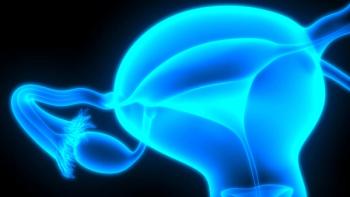
- ONCOLOGY Vol 11 No 8
- Volume 11
- Issue 8
Pap Smear Refined
The high proportion of false negatives associated with Pap smears spurred the development of more effective collection and diagnostic techniques for cervical cells. The Pap smear, a universal standard in the detection of cervical cancer, has recently
The high proportion of false negatives associated with Pap smears spurredthe development of more effective collection and diagnostic techniquesfor cervical cells. The Pap smear, a universal standard in the detectionof cervical cancer, has recently been refined by two new approaches thatgreatly reduce the incidence of false negatives.
At the annual meeting of the Society of Gynecologic Oncologists, studydata was presented that showed that cervical cancer and precancer detectioncan be enhanced by the use of neural network (artificial intelligence)computer technology. More than 16,000 smears, reprocessed by the computer-basedPAPNET test, found many pre-cancerous abnormalities that had been missedby conventional screening. These slides were originally reported as negativedespite presenting with an abnormality. PAPNET testing was shown to identify10 times more false-negative smears than would have been detected by manuallyrescreening an equal number of smears.
The study was conducted by Laurie J. Mango, MD, of Neuromedical Systems,Inc. developer of the PAPNET test, and Gary L. Goldberg, MD and Irwin R.Merkatz, MD, both of the Albert Einstein College of Medicine. "Negative"smears were reviewed and reclassified across four categories: ASCUS/AGUS(atypical), LGSIL (low-grade squamous intraepithelial lesion), HGSIL (highgrade), and carcinoma. Three academic laboratory sites provided the archivedsmears for review.
Mead Johnson and company recently agreed to copromote another refinementto the Pap smear. Cytyc corporation launched its ThinPrep Pap Test in January,1997. In clinical trials , the test has proven to be significantly moreeffective than the conventional smear for the detection of low-grade andmore severe lesions and to markedly improve specimen quality. Mead Johnsonsigned on to distribute and market the test to obstetricians and gynecologiststhroughout the United States. Currently, over 400 laboratories in the UnitedStates employ the ThinPrep system for use in the diagnosis of various cancers.The ThinPrep System consists of the ThinPrep 2000 Processor and relatedreagents, filters and other supplies.
Articles in this issue
over 28 years ago
Can We Make Low-Fat Foods More Palatable?over 28 years ago
The Prostate Cancer Intervention Versus Observation Trial (PIVOT)over 28 years ago
Practical Tips for Caring for HIV/AIDS Patientsover 28 years ago
The Role of Exercise in the Prevention and Treatment of Cancerover 28 years ago
Oropharyngeal and Oral Cavity Cancer Surgical Practice GuidelinesNewsletter
Stay up to date on recent advances in the multidisciplinary approach to cancer.






































